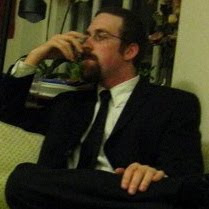I have been inspired by one of my current MJTI classes to reflect a bit more on concepts around Oral Torah. I want to begin by sharing two underlying assumptions I bring to the conversation right from the get-go:
1. I do not believe legalism has anything to do with Judaism whatsoever. Among the critiques I have of developed mesorah (tradition/heritage), and there are some, legalism does not ever come up.
2. I DO believe Oral Torah is an indispensable componant to the life of any Jewish community and to attempt to completely do away with it is both unfortunate and impossible.
The question lies in what "it" is. I have a few thoughts for our consideration.
I plan on doing an extended "series" on this topic and so I will start with what I believe Oral Torah is NOT.
Oral Torah is not a collection of documents. In other words, I would say it is inaccurate to define Oral Torah as : Talmud, Tur, Shulchan Arukh, Midrash Rabbah, etc. The process of Oral Torah led to the creation of such works. Oral Torah, by definition, oughtn't be reduced to a list of documents.
Oral Torah is not a verbatim recitation of a series of laws given to Moses at Sinai. The Savoraim, who redacted the Gemara, preserved a number of metaphors, declarations, and parables to describe the differences between Oral Torah and Written Torah and they did not seek to describe anything apart from Oral Torah's "rootedness" and authority from Sinai (examples to come in the series).
Oral Torah does not "trump" Written Torah-Oral Torah was never in competition with Written Torah in the first place. To put them at odds is to fundamentally misunderstand the sages who first described them as unique componants of Torah.
In the coming days and weeks I will post more on what Oral Torah actually is (and it is multiple things)...first a mashal (parable):
" What is the difference between the Written Torah and the Oral Torah? To what can it be compared? To a king of flesh and blood who had two servants and loved them both. He gave each of them a measure of wheat and each a bundle of flax. What did the wise servant do? He took the flax and spun a cloth. He took the wheat and made flour. He cleaned the flour and ground, kneaded and baked it, and set it on top of the table. Then he spread the cloth over it and left it until the king would come. The foolish servant, however, did nothing at all." (Seder Eliyahu Zuta, Chapter 2)

Benjamin,
ReplyDeleteGreat post and looking forward to your series. I agree whole-heartedly.
Thank you, Rabbi Joshua!
ReplyDeleteGood stuff, Benjamin.
ReplyDeleteVery good post... looking forward to reading the series! I just learned that Torah was a parable :-)
ReplyDeleteShalom
I echo what's been said so far. And I think the mashal you closed with is really great.
ReplyDeleteAwesome parable. I will definitely make use of that one in explaining the need for tradition to fill in commandment. This is not only a Jewish issue. In Christian communities which seek to have little or no tradition, this is an everyday problem. No specific path of discipleship has authority. So with an infinite number of choices, people are paralyzed with indecision and take no path at all.
ReplyDeleteDerek Leman
Very interesting I look forward to your further discussion on the Oral Torah. The Oral Torah is associated with Miriam's Well and when the waters of her well dried up after her death Moses sinned by striking the rock. This demonstrates that reading the Written Text of Torah without the teaching of the Mother (oral Torah)leads to legalism, intellectualism and dryness in Torah. The oral Torah causes the Written Torah to flow forth with living waters of spirituality for the soul. In the Catholic church we find that when ever the Marian dimension is lacking then this dryness and stagnation happens to movements and sections of the church and sometimes leads even to heresy.
ReplyDeleteDerek,
ReplyDeleteI very much agree that this is a larger issue that has a wide range of meaning for the larger Body. Thank you for relating that aspect of it.
Aharon,
Thank you for visiting my blog! I appreciate your metaphor that views Oral Torah as a mechanism to disempower dry and rigid religiosity. I also value you your insights from your Catholic background. I look forward to continued conversation.
The question remains for all communities: How do we also keep those traditions from becoming rigid?
My hope in this series is to inspire a "small-scale" renewed vision and approach toward Oral Torah, for myself and anyone else interested.
Ben to all:
Thank you for your feedback and I hope the series will produce good discussion.